A sight for the sore eyes, the kiwi fruit (किवी फल) is a great addition to a fruit bowl, smoothies and desserts. A brown, fuzzy skin on the outside and bright green on the inside, kiwi fruit is a brilliant addition to your diet. Kiwi fruit is also known as Chinese Gooseberry.
A kiwi can be considered as a nutritional powerhouse since it contains generous amounts of proteins, fats, carbohydrates, minerals, vitamin c, vitamin k, vitamin e, and dietary fiber, all of which are basic nutrients that one requires to lead a healthy lifestyle. The antioxidant and anti-inflammatory properties of Kiwi, make this exotic fruit a natural remedy for respiratory ailments.
If you are wondering about its other benefits, here are a few other health benefits of kiwifruit that might help you fully understand its nutritional content and uses.
How Did The Chinese Gooseberry Become Kiwifruit?
Said to be Chinese in origin, Kiwis were not always associated with New Zealand. Kiwifruit was introduced in New Zealand in 1904 when the seeds of this fruit were brought to the country from China. Today, kiwi is the national fruit of New Zealand and is one of the leading producers of kiwifruit.
Table of Contents
Watch – Health Benefits Of Kiwi
Nutritive Values Of A Kiwi Fruit
According to the United States Department of Agriculture (USDA), 100 grams serving of kiwifruit contains the following –
| Nutrients | Amount (100 grams serving of kiwifruit) |
| Calories | 61 |
| Carbohydrates | 14.66 grams |
| Protein | 1.14 grams |
| Fat | 0.52 gram |
| Vitamin C | 92.7 mg |
| Fiber | 3 grams |
| Potassium | 312 mg |
| Vitamin K (1 medium fruit) | 5 mcg |
Kiwi Fruit Benefits
1. A Great Source Of Antioxidants
Kiwi fruit benefits are many, but the top spot goes to its high antioxidant content. Kiwifruit has a high vitamin C content which is a powerful antioxidant.
About 100 grams of kiwi contains about 92.7 mg of vitamin C, and considering that the daily requirement (RDA) of this beneficial vitamin for an average person is 90 mg, it can be said easily that kiwi is a reliable source of vitamin C.
It can effectively help reduce the oxidative stress on our body, reduce free radicals and reduce free radical damage that are responsible for various diseases like cancer, heart disease and nervous and health disorders.
Foods rich in antioxidants – A To Z Of Antioxidant-Rich Food | Complete List Of Food Items To Fight Free Radicals
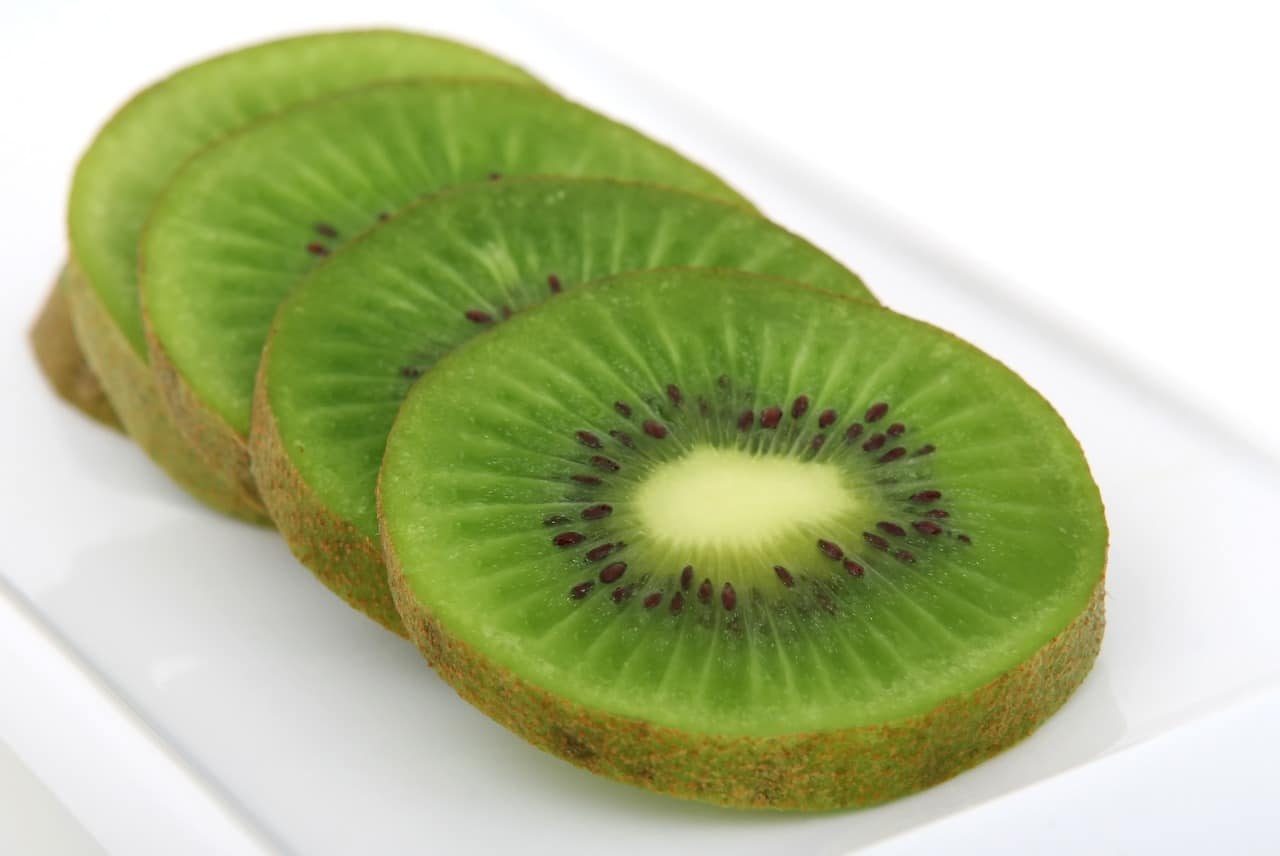
2. Kiwi Is Loaded With Fiber And Is Good For Digestion
The fiber loaded nature of this fruit makes it a perfect addition to your diet, if you are looking to improve your digestion. Since dietary fiber is a non-digestible part of the food, your body requires an extra amount of work to completely digest a fruit such as this one. And in doing so, it boosts the body’s metabolism and aids in the burning of a few extra calories too.
Kiwi also has an enzyme known as actinidain, a compound known for its protein dissolving property. Thus, this exotic fruit can effectively ease the digestion of protein also.
Many studies have shown that the intake of fiber rich foods can help lower the risk of heart disease including, cardiovascular disease (CVD) and coronary heart disease (CHD). In fact, fiber rich foods are excellent for diabetics and for those who are trying to lose weight.
3. Promotes Weight Management
Looking for foods for weight loss? Dietary fiber not only helps in boosting your metabolism and burning off a few calories, but it can also slow down your digestion, in a good way. This allows a fiber-loaded food to fill you up and prevents you from overeating, thus keeping your weight in check.
However, the fact remains that fiber makes it harder for your stomach to digest, so you should consume it in a moderate amount only and keep a note on your consumption, as too much of it might just make you gain some weight if the digestive process is slowed down more than needed.
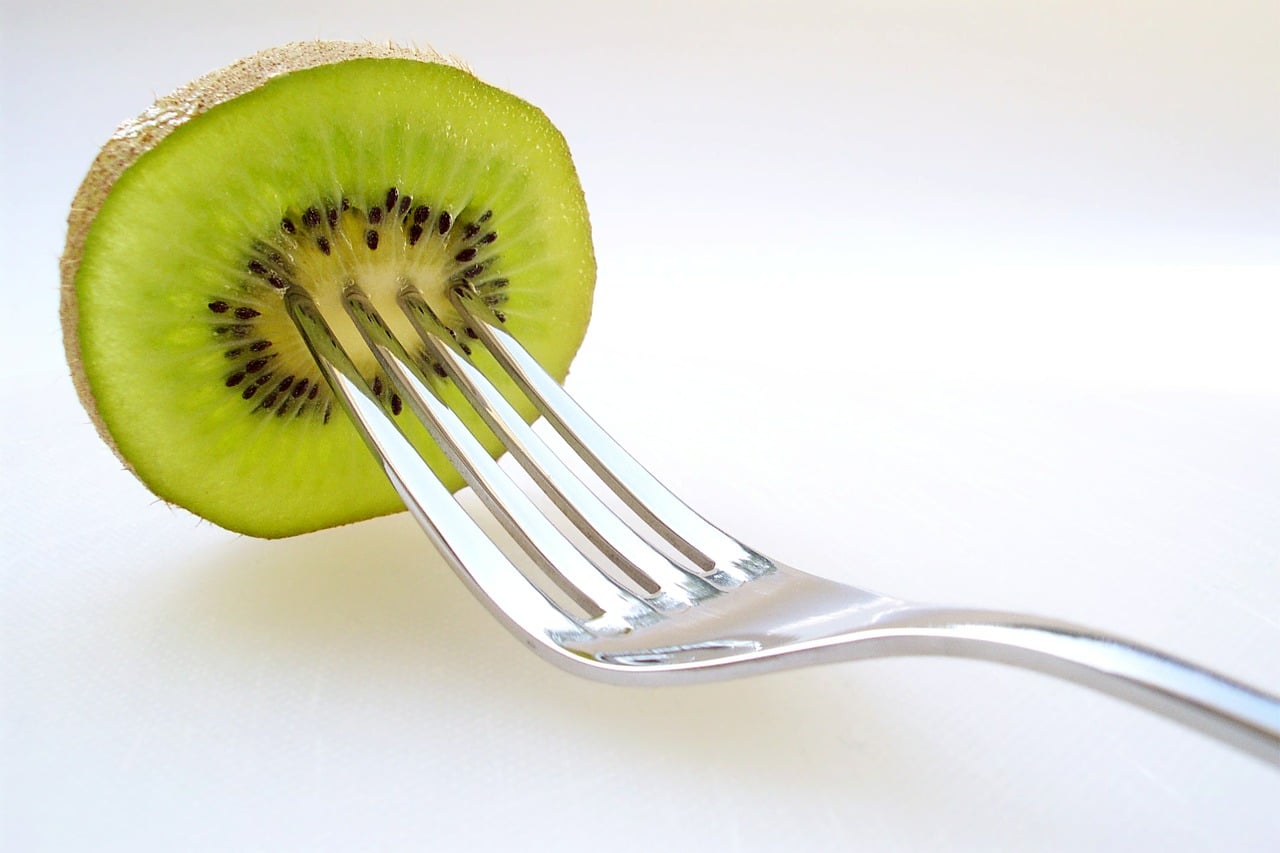
4. Aids In The Lowering Blood Pressure Levels
One of the main nutrients found in kiwi is potassium. Potassium is a mineral that can help in lowering levels of blood pressure. Sodium, a mineral present in salt, has a property of constricting your blood vessel walls, and in doing so it ends up increasing your blood pressure.
Since most of the food items that you consume contain an adequate amount of salt, it is necessary for you to include some food items that are rich in potassium (such as kiwi) into your diet. A healthy dosage of potassium helps in producing a dilating effect in your blood vessel walls, thus counteracting the effects of sodium and lowering your blood pressure. Here is a list of top 9 heart friendly foods that must be included in your diet.
5. Helps Boost The Immune System
The vitamin c content directly effects our immune system. About 100 grams of kiwi can fulfill your daily requirement of vitamin c, an antioxidant that not only helps in getting rid of free radicals but is also quite essential when it comes to improving the strength of your immune system. This potent antioxidant can be beneficial when it comes to supporting various cellular functions.
Vitamin C has also shown a capable combating ability against common cold and flu. Here is a list of vitamin c rich food items that can be added to your diet to increase the vitamin c content in your meals.
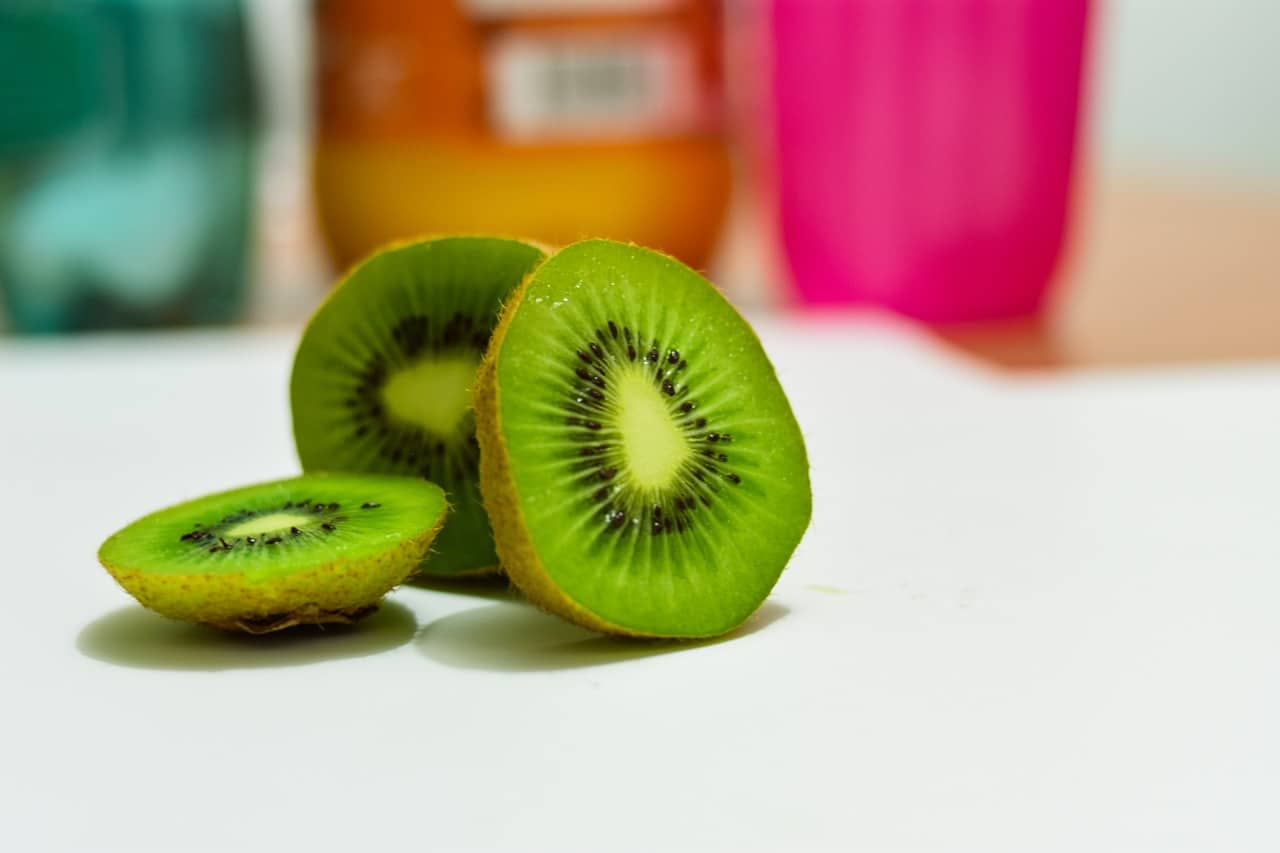
Also Read: Immunity-Boosting Foods: Tomatoes, Mushrooms, Broccoli, Oranges And More
6. Reduces The Risk Of Blood Clots
Eating two or three kiwis a day might just make a perfect treat for lowering the risk of blood clotting.
Intake of this exotic fruit is linked with the lowering of the fat content in the blood that can cause blockages, hence it is often recommended by the doctors for the betterment of one’s heart. This benefit of kiwi fruit may even make is a natural alternative for an aspirin.
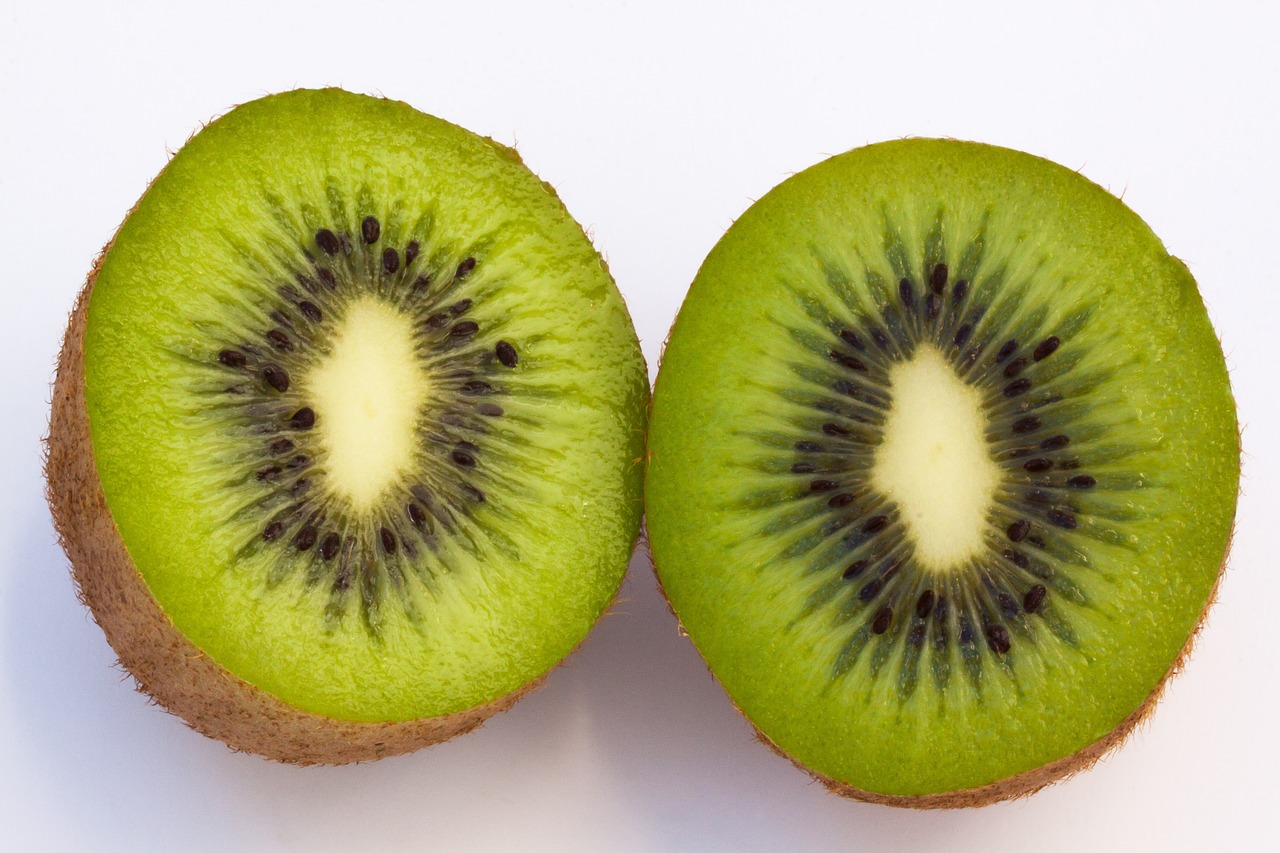
7. Kiwifruit Is A Natural Remedy For Asthma
The high amount of antioxidants and vitamin C that kiwi contains can actually be good in fighting inflammations that cause asthma. The consumption of vitamin C reduces the inflammation caused in the respiratory system due to allergic reactions, and since asthma patients are required to follow a certain diet, kiwis, due to their anti-inflammatory properties, can undoubtedly be a part of it. According to a study, kiwis may help reduce wheezing in children.
You can also have a look at the list of anti-inflammatory foods that can help reduce inflammation in the body.
8. Great Source Of Folate
A specific type of vitamin B, folate, has also found its place in this exotic fruit. This vitamin is quite essential in the production of red and white blood cells, and adequate consumption of folate is important during periods of growth, pregnancy, and adolescence.
Furthermore, a healthy dosage of folate also reduces the risk of high blood pressure and some oxygen-deficient disorders such as anemia.
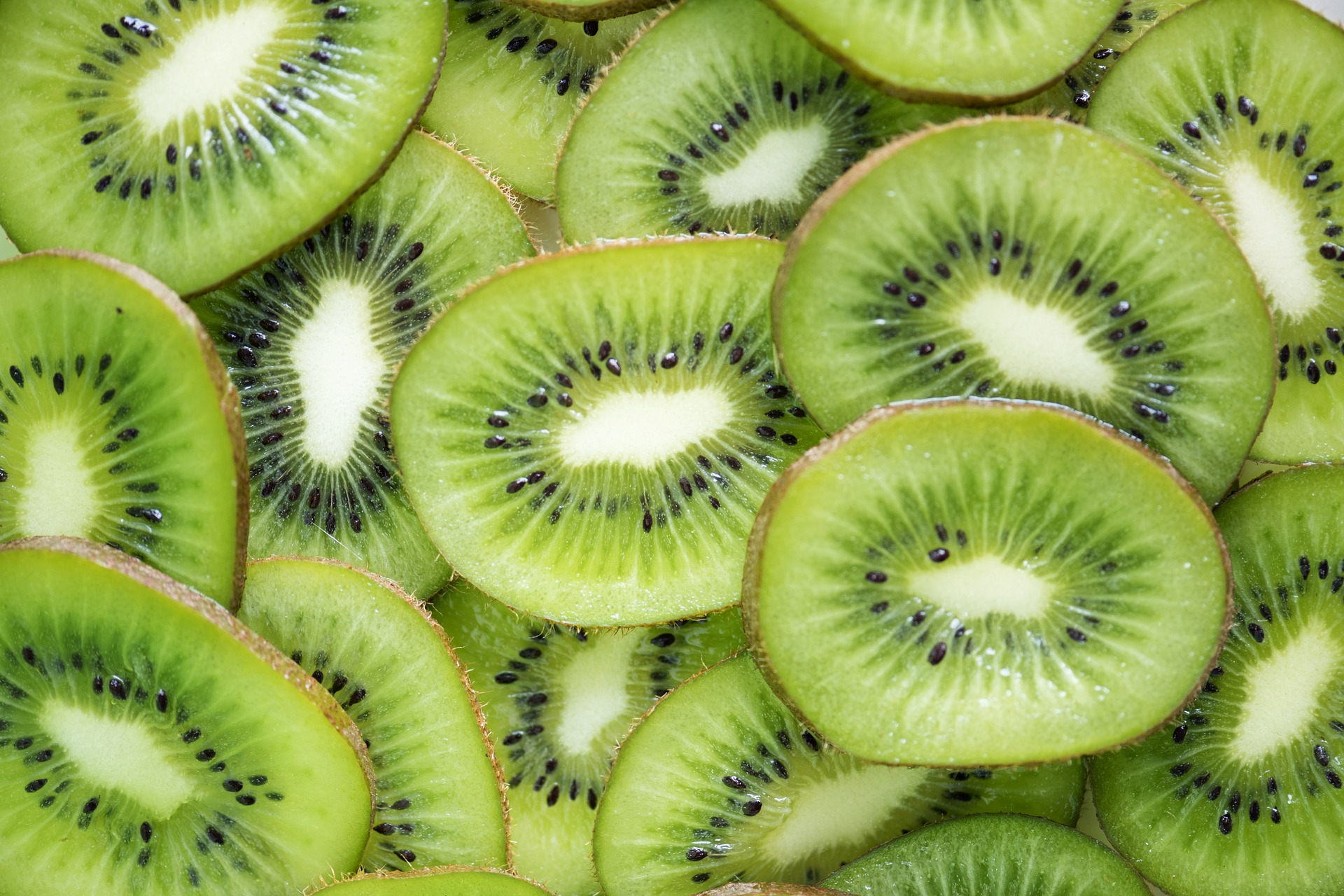
9. Kiwis Have A Low Glycemic Index
In other words, kiwis help in better management of one’s blood glucose levels. The high fiber content of kiwis also aids in maintaining blood sugar levels.
Since consumption of fiber slows down the overall rate of digestion, it also results in a slowed down absorption of sugar molecules, hence giving a sufficient amount of time to the pancreas for secreting insulin – a hormone that is essential for breaking down sugar molecules into energy.
10. Kiwis Can Help Induce Sleep
One to two kiwis before bed can help induce sleep and improve the quality of sleep also. According to research and a few studies, kiwifruit is one of the best foods to consume before going to bed.
In a study it was noticed that people who consumed kiwis before going to bed fell asleep 42% quicker than the ones who didn’t eat kiwis. Not only that, their sleep quality was also improved.
How To use Kiwis? | 5 Ways
Kiwis taste great as it is. Kiwis, golden or green are a great addition to any fruit salad. The green kiwis are a little tart in comparison to the golden kiwi variety. Even though we believe fruits are best when eaten whole, but for those who aren’t fond of them, here are a few things you can make with kiwis.
1. Kiwi Smoothie
Smoothies ensure a power packed day for the body. A great smoothie to have is with green kiwi, banana and strawberry.
2. Kiwi Sorbet
A perfect palette cleanser, kiwi sorbet is beautiful to look at and great to taste on a hot summer afternoon.
3. Kiwi As A Cake Topper
A vanilla and cream cake topped with thinly sliced mangoes and kiwis remains unmatched.
4. Pavlovas
Kiwis and pavlova are a dream team.
5. Kiwi Salsa
Not only sweet, kiwis can be turned into a tart salsa also with a hit of jalapeños and coriander.
Potential Side Effects Of Kiwifruit
Even though kiwis are a rather safe fruit to eat, please do check for allergies. In some people a kiwi allergy can trigger a lot of symptoms like an itchy throat, swollen tongue, trouble swallowing, vomiting, and hives.
As kiwis have blood thinning qualities, make sure you eat them in moderation. Especially if you are diabetic or are about to have a surgery.
FAQs About Kiwifruit
1. How do I choose kiwi?
Selecting quality fruits is not as easy as it looks. Kiwi should be lightly supple to the touch in order to have a tender and sweet flesh, or a little firmer for a tart flavour.
Whatever your taste preference, kiwi should not be soft. That is a sign of over-ripeness that makes it lose its signature tart flavour. Its skin should be smooth and uniform without any marks.
2. What are the main differences between Green and Golden kiwi fruit ?
The biggest difference between the two fruits is taste. Green kiwi is a winter fruit and has a tart-sweet taste but Golden kiwi is mellow and tropical, a mixture of mango, melon and citrus flavors. People who find Green kiwi too tart usually love Gold.
As for other differences, the color is Golden, instead of Green (as the name already suggests) and it is tear-drop shaped, with a smooth skin and a crown on the top. Lastly, while you might need to wait a few days for Green to ripen, Golden kiwi is always ready to eat.
3. How should I store kiwi?
A common question that surrounds kiwifruit is ‘how should the fruit be stored?’.
Kiwi can be rather firm when you buy it. Such unripe kiwi will be too sour to eat and should be kept at room temperature and it will ripen in a few days.
You can also speed up the ripening process by storing kiwi in a paper or plastic bag together with other ripe fruit such as bananas or apples. Ripe kiwi contains ethylene, a natural gas emitted from the fruit that speeds up the ripening process.
4. Why is uncooked kiwi and milk incompatible?
Kiwi contains a special enzyme called actinidin, which splits and dissolves protein. If you add uncooked kiwi (ripe or unripe) to products rich in protein, it begins to break the protein down, which explains why your kiwi starts to curdle if you leave it for too long.
5. Is kiwi grown in India or is it mostly imported from other countries?
Yes, in India, kiwi is cultivated in the mid hills of Himachal Pradesh, Uttar Pradesh, Jammu and Kashmir, Sikkim, Meghalaya, Arunachal Pradesh and Kerala. Kiwi is native to north-central and eastern China and Italy is the largest producer of kiwi in the world followed by New Zealand and Chile.
In India, both qualities of kiwi can be found, locally grown and imported. The imported variety is undoubtedly more expensive than the locally grown one.
Conclusion
Now, there is no doubt in the fact that kiwis are beneficial. Taking into account kiwi’s various nutritional elements, you must take care while consuming it, for it could very easily disrupt your balanced diet.
Too much of it might just make you gain weight, make your blood thinner, or it could also lower your blood pressure below its desired limit. All foods including fruits must always be eaten in controlled quantities.


